Bringing water to rural communities in Pakistan
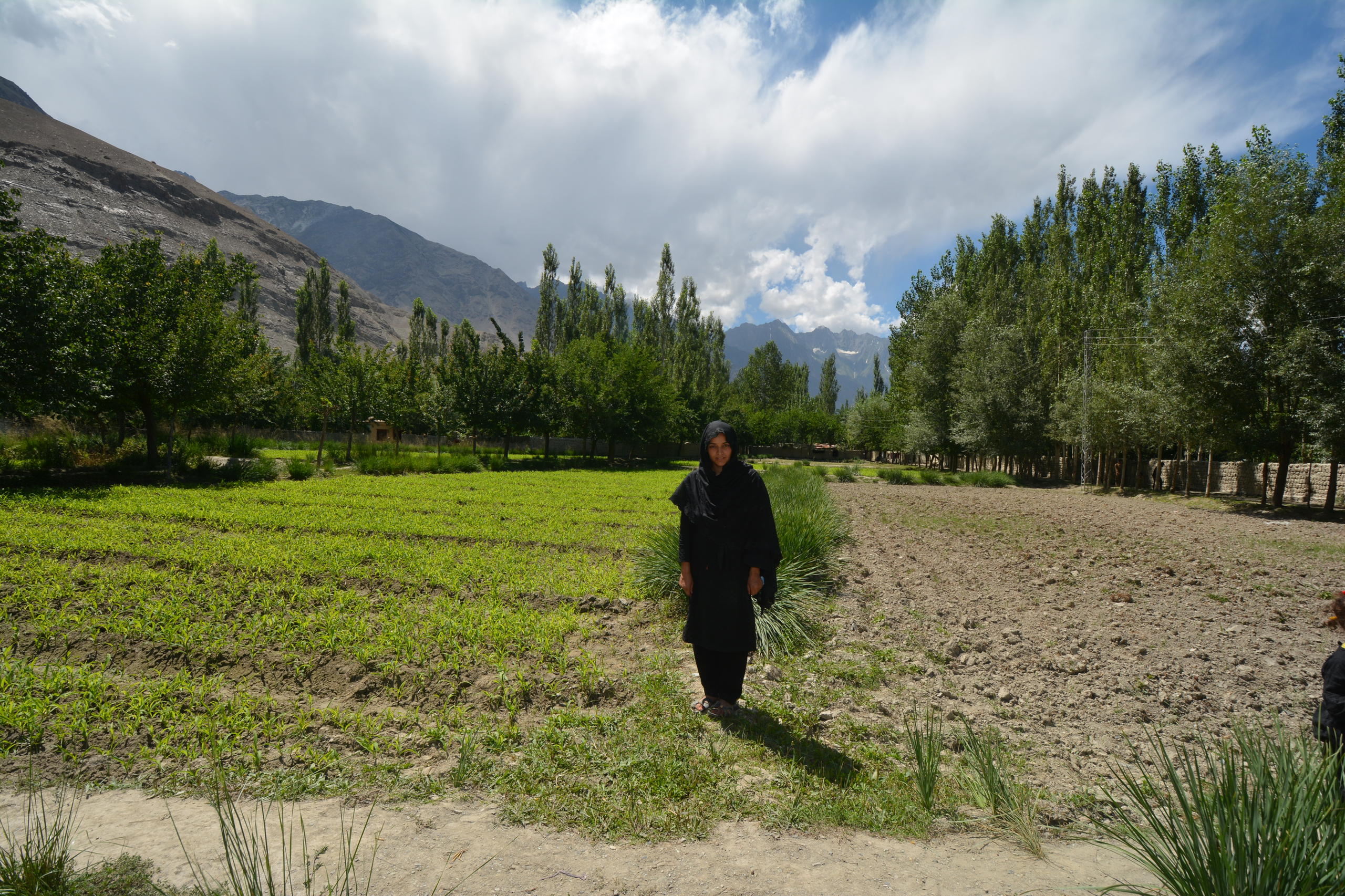
A Swiss-financed irrigation channel in the mountains in Pakistan’s remote northern region has brought a ray of hope for a community facing food security and climate challenges.
Pakistan’s most northerly region Gilgit-Baltistan is a world-famous tourist destination. Mountaineers from across the world come here to climb some of the world’s top peaks, including Gasherbrum II and Nanga Parbat.
But behind the region’s international recognition for natural beauty and high mountains, its hundreds of villages spread over an area of 72,971 square kilometres are living under the threat of climate change.
Chani Ragyul, a small village some 600 kilometres north of Islamabad, is struggling with a prolonged snowfall season that now lasts until the end of March instead of February. And the lack of a sophisticated irrigation system – which could mitigate drought and the longer snow season – means a lower crop yield. The village had to shift from harvesting twice each year to just once.
“There is less water coming from the mountains and we are struggling with waste such as frozen snow due to having no proper irrigation system,” says villager Mohammad Ali.
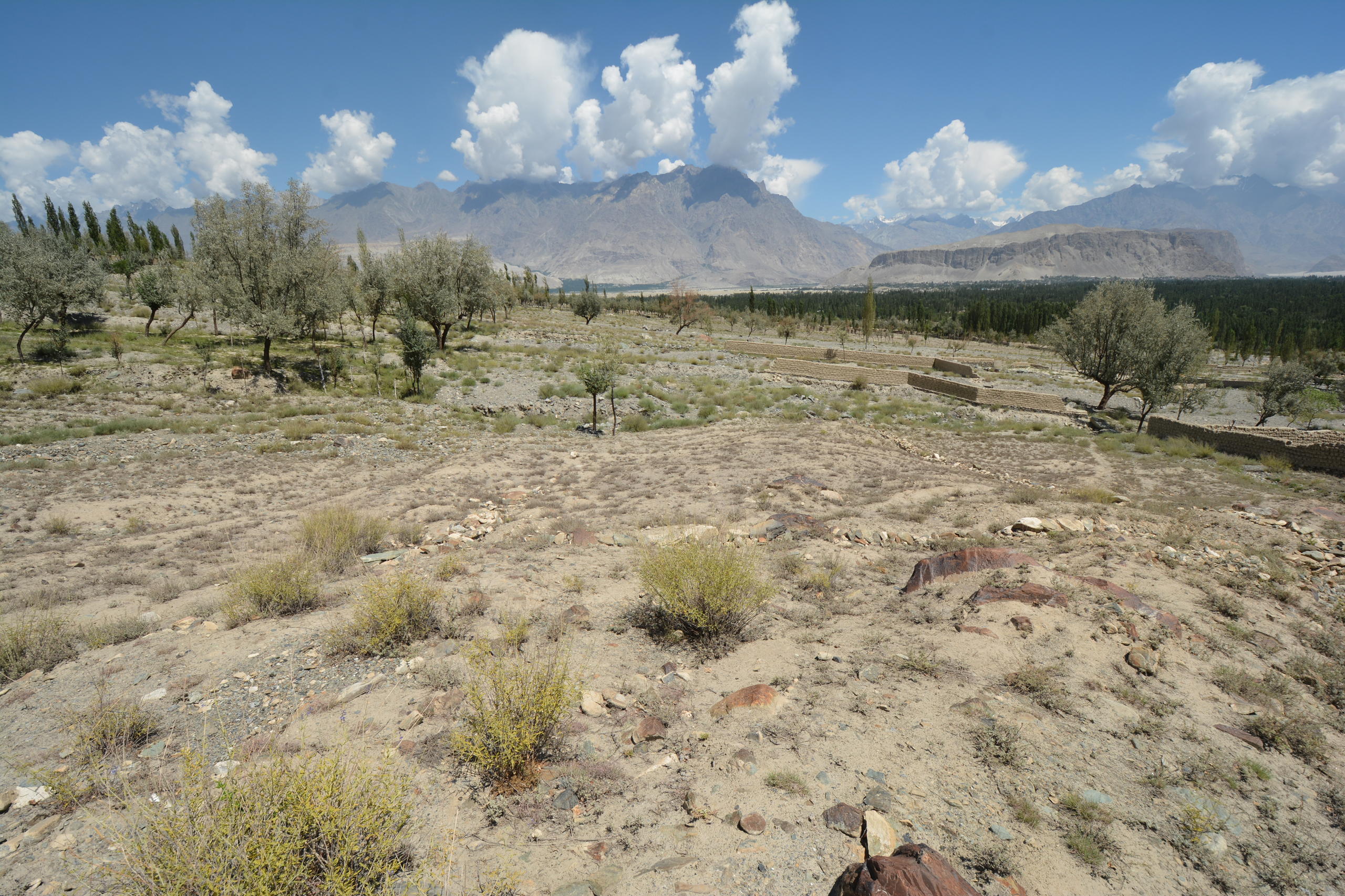
Hard hit
According to the IPCC’s sixth assessment report, Pakistan is facing severe consequences in rural and urban areas due to climate change. It is already among the top ten climate-impacted countries worldwide. Shrinking glaciers mean less water is arriving in the Indus River, one of Pakistan’s main water sources. This is also affecting crops and food security, with less agricultural and livestock production.
For the 910 villagers of Chani Ragyul, this means the harvest season is now taking place two months ahead of schedule, which again threatens food security.
The IPCC report also warns of future locust attacks and says Pakistan lost 2% of its agricultural production in the fiscal year 2019-20. The main threats to crops and arable land include floods, droughts and heatwaves. The report suggests that local populations in Pakistan change their sowing and harvesting practices to cope with the risks.
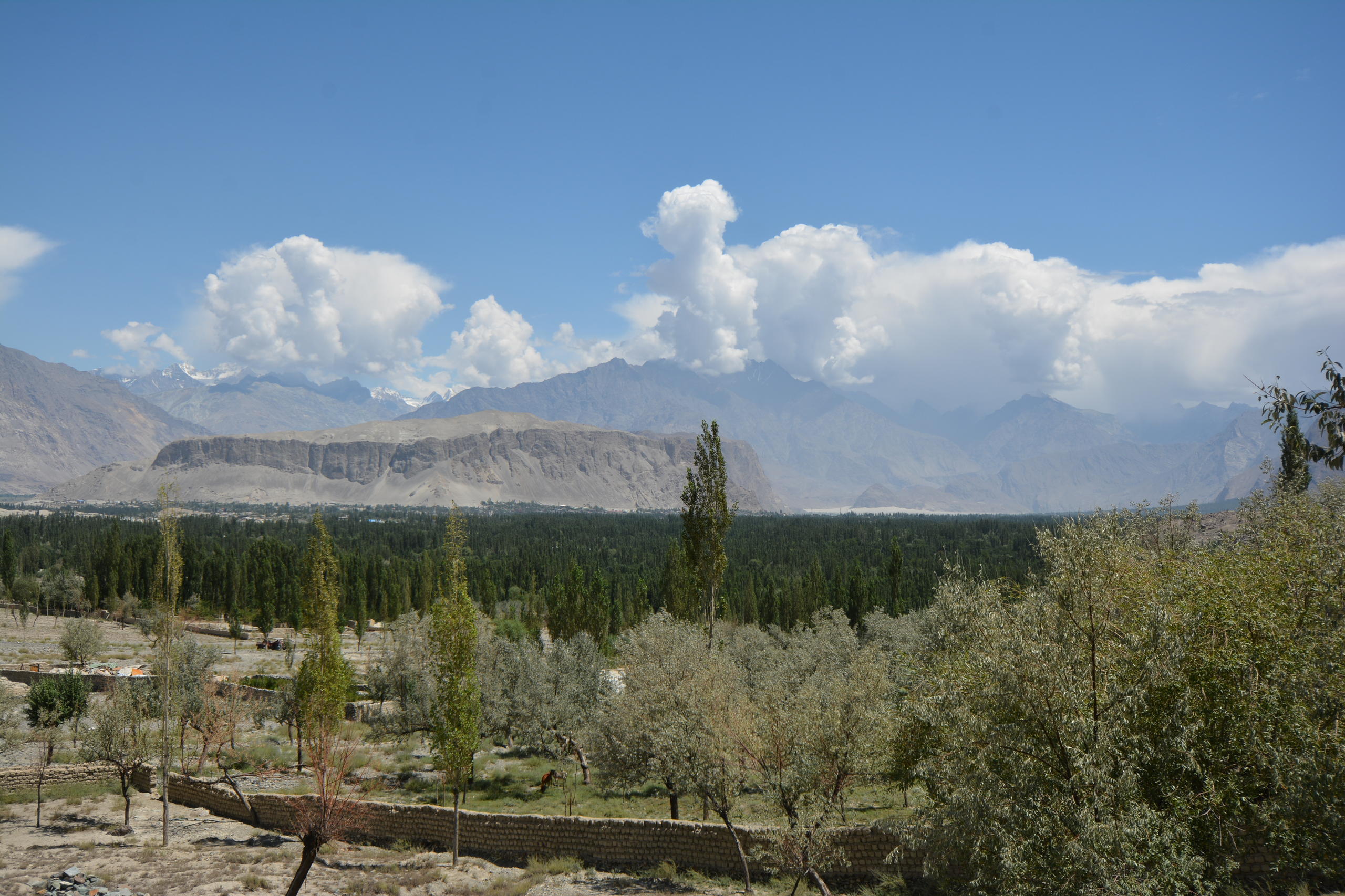
Only 4% of land in the mountainous area is suitable for cultivation and the community is largely dependent on crops for its livelihood.
“Crops like wheat, corn and vegetables in the village were being harvested later due to delayed ice melting from the glaciers,” says Aisha Khan, the head of the Mountain and Glacier Protection Organization Pakistan.
Irrigation answer
One solution to the systemic risks linked to climate change includes introducing a sophisticated irrigation system.
“Every year variations in the snowfall season have further increased the problems of communities whose agriculture is heavily dependent on mountain irrigation systems,” says Zakir Hussain, Deputy Director in the agriculture department of Gilgit-Baltistan’s government.
He said that for many, irrigation channels have become their lifeline.
“Government and non-government sectors are working in the region to build irrigation channels to cope with the food security issues of these communities,” says Hussain.
One of these projects has been financed by Switzerland.
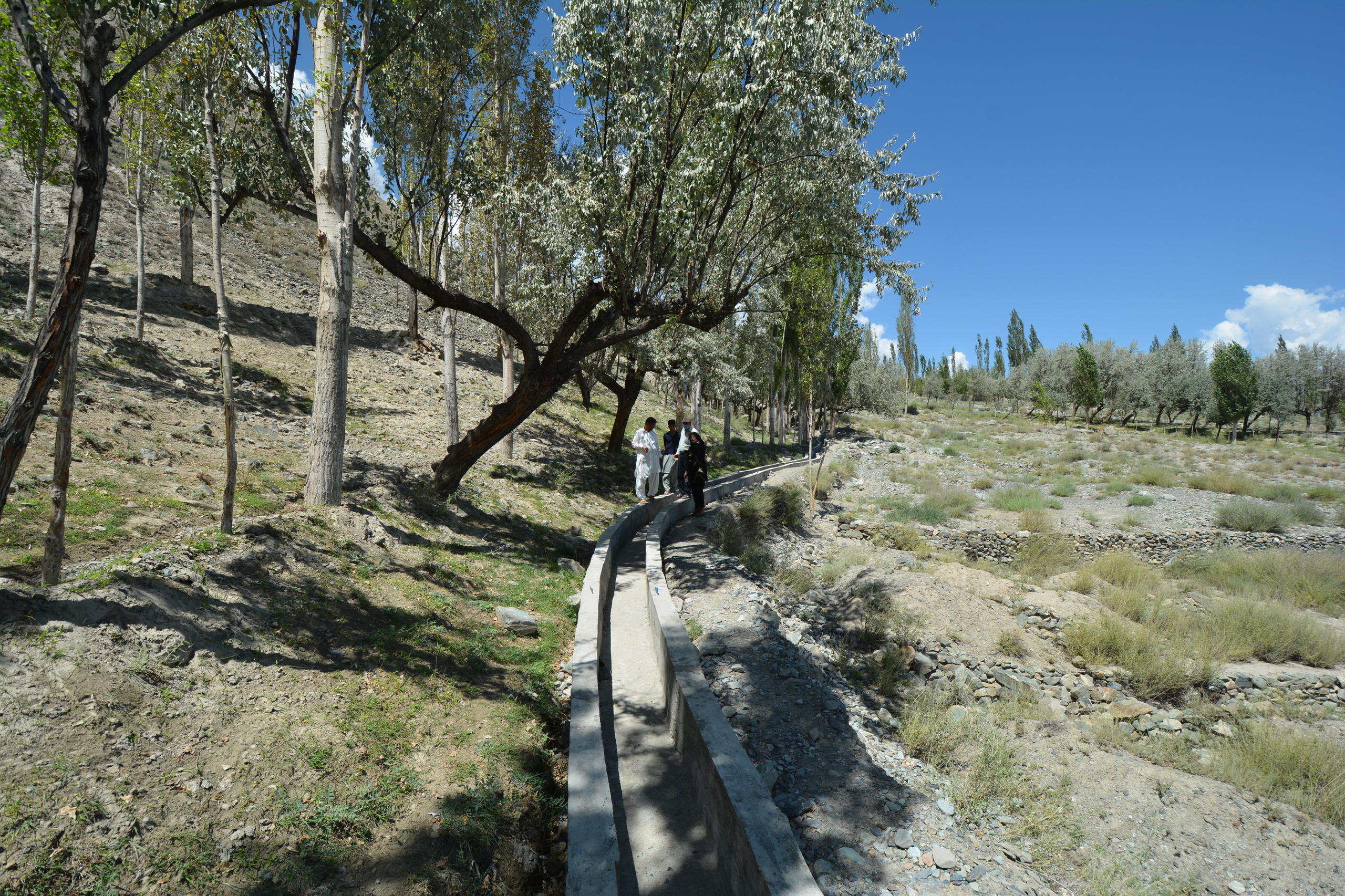
The installation of a 550-metre irrigation channel in the mountains around the village has allowed for a continuous water supply to crops. The embassy of Switzerland in Pakistan contributed some $11,000 (CHF10,889) to build the system.
The program has allowed for the irrigation of 146 hectares of land, including 39 hectares of previously barren land. It was constructed in eight months and has allowed for an additional 146 billion litres of water to flow into the village. Crops can now be harvested twice per year.
The Swiss Agency for Development and Cooperation (SDC) say its projects focus on the local management of water supply and sanitation, efficient water management, and support for hygiene in schools and health centres. Water management has been part of Switzerland’s priorities for development cooperation for over 40 years, the SDC says.
Meanwhile, the irrigation channel has boosted the per capita income of households in Chani Ragyul. “And it has empowered women and protected the environment,” says Faazil Ali, another villager.
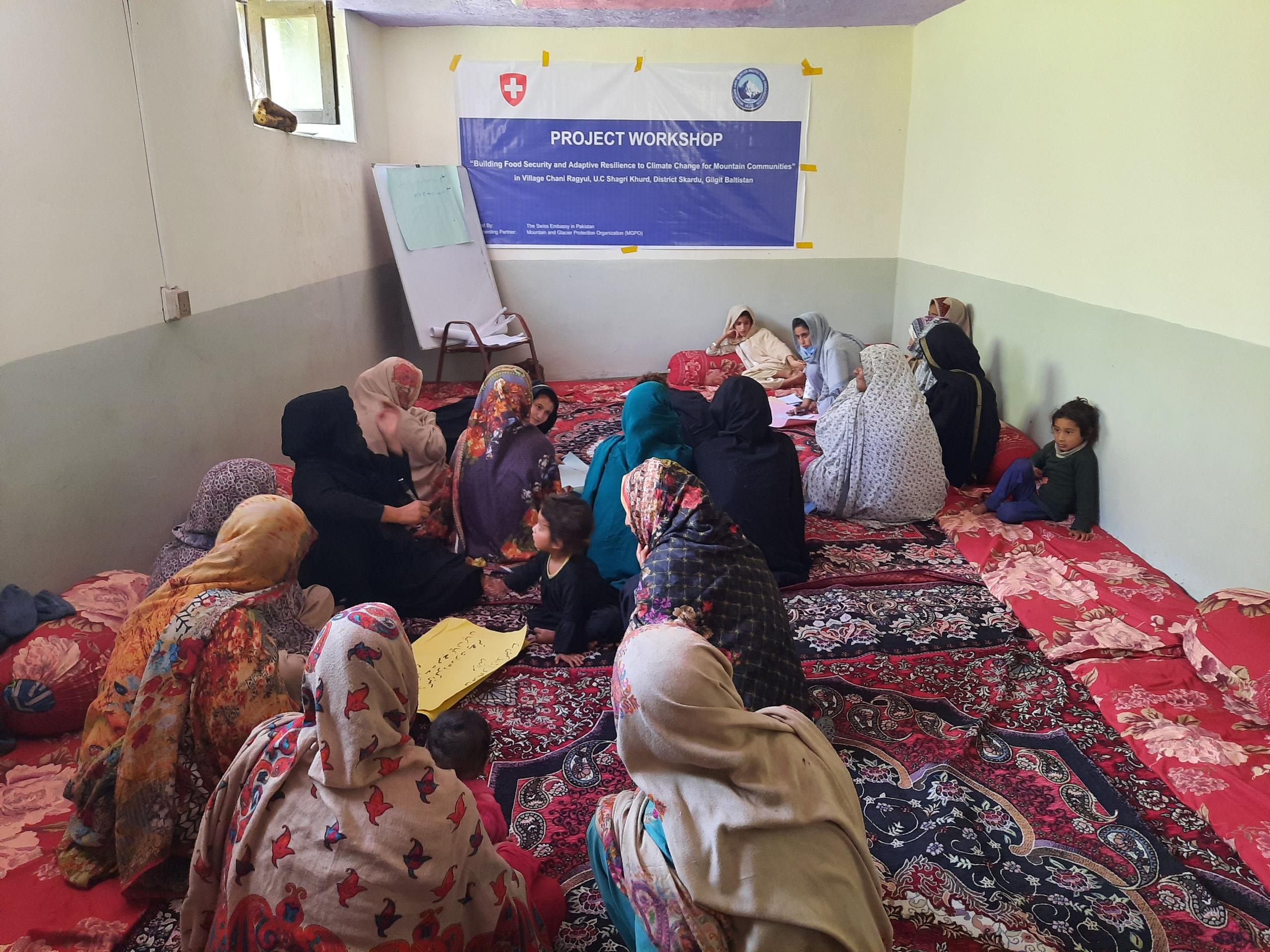

In compliance with the JTI standards
More: SWI swissinfo.ch certified by the Journalism Trust Initiative








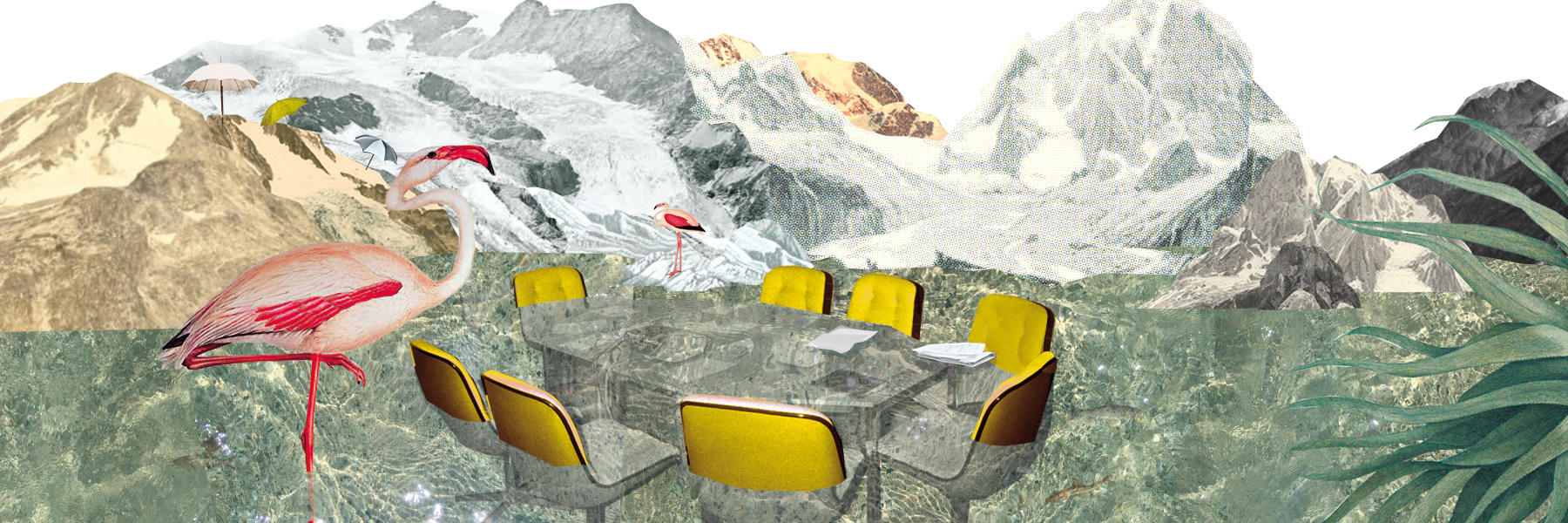
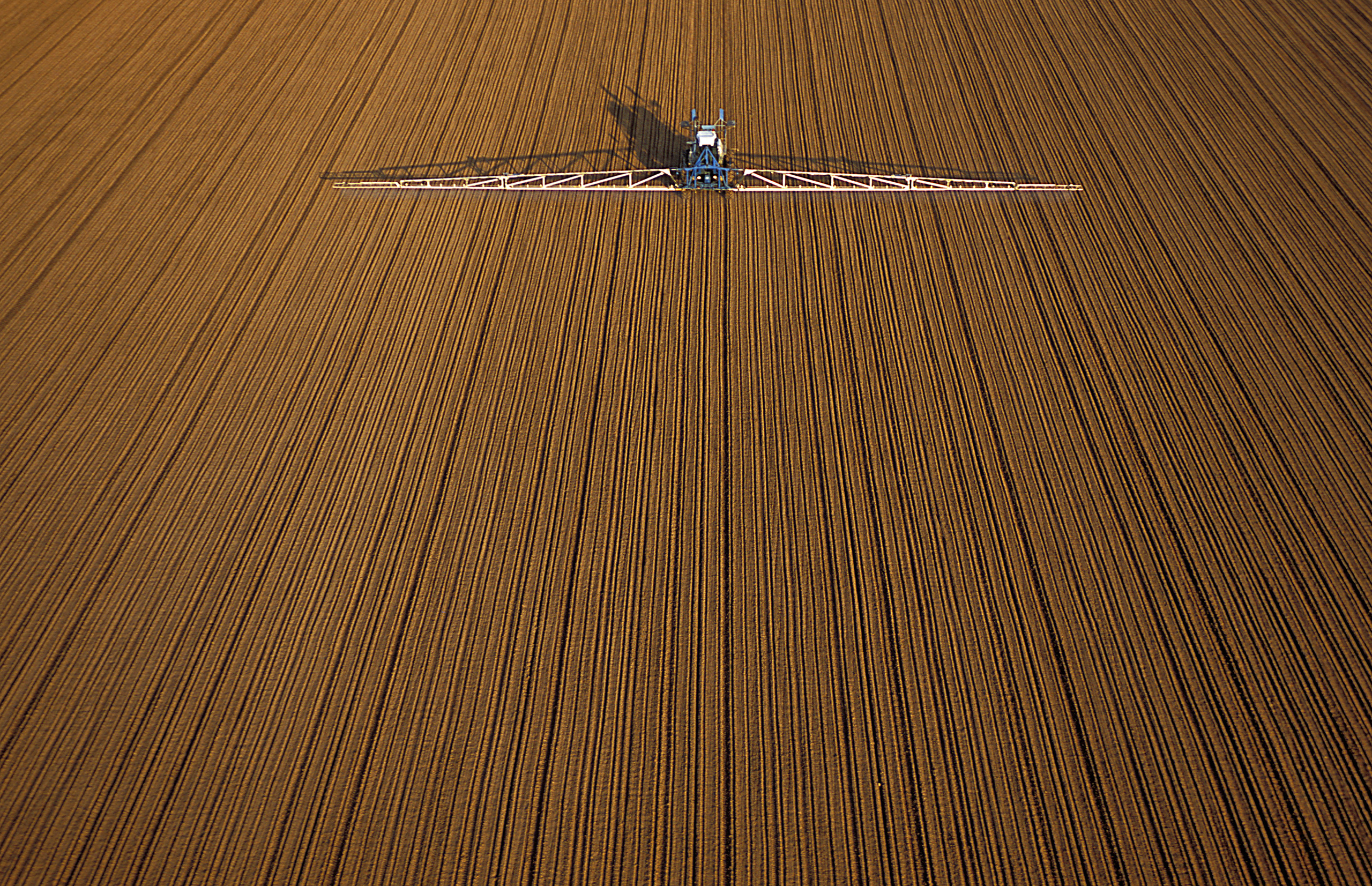
You can find an overview of ongoing debates with our journalists here . Please join us!
If you want to start a conversation about a topic raised in this article or want to report factual errors, email us at english@swissinfo.ch.